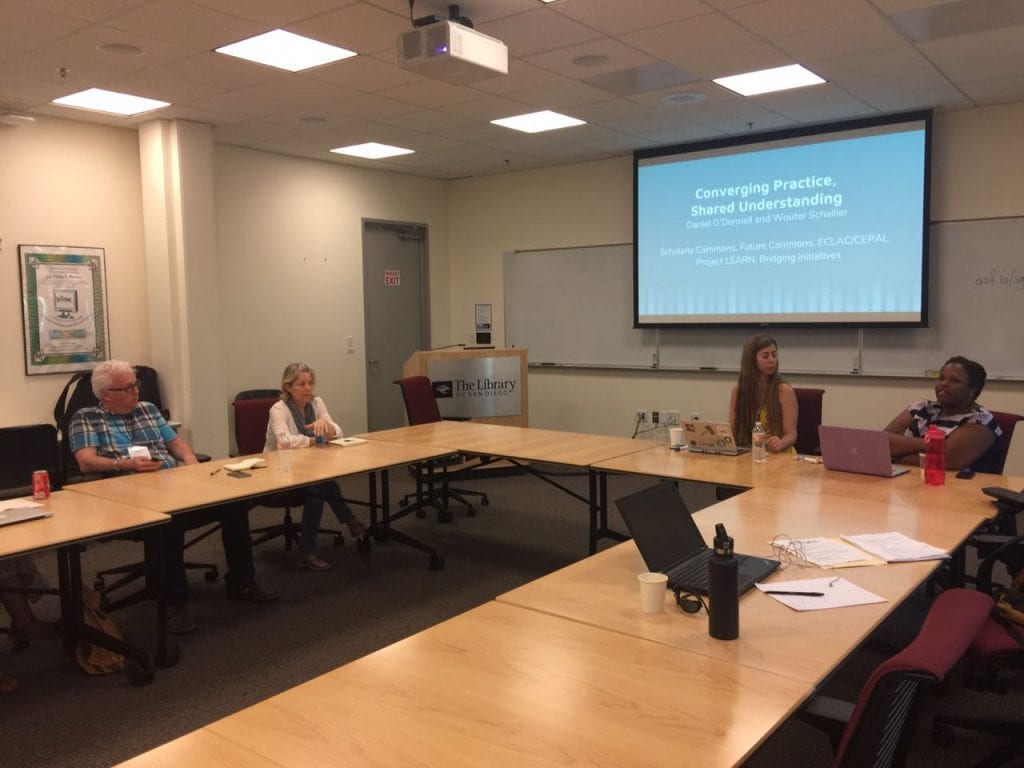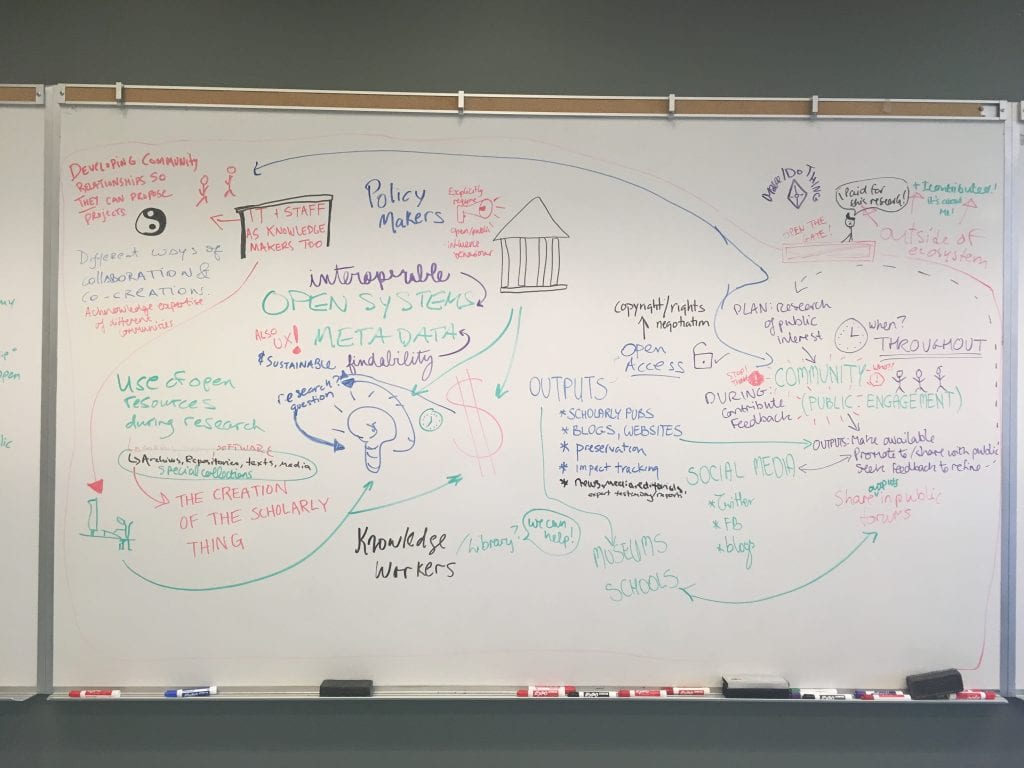The Scholarly Publishing and Academic Resources Coalition (SPARC) established International Open Access Week ten years ago, in 2008, to help open access advocates promote openness to scholarly publications. This year’s Open Access Week runs from 22nd to 28th October under the theme Designing Equitable Foundations for Open Knowledge. In preparation for open becoming the default for scholarly research, it’s important to make sure that open systems are inclusive, equitable, and meet the needs of diverse communities.
We are running a series of events for UCL staff during International Open Access Week. They will explore not only open access, and the REF open access policy that plays a huge role in shaping the open access landscape in the UK and at UCL, but they will also discuss other movements that aim to make research open, like open education and research data management.
The theme for this special interest group meeting is ‘designing equitable foundations for open knowledge’, to which we are contributing towards through the open education (OE) project, the OER repository, and by shaping OE policy at UCL. We’ll talk about open education as a facet of open access, fill you in on the project’s activities, and discuss with colleagues across UCL. Join us and share your ideas!
RPS and the REF open access policy training session
Start: Oct 23, 2018 14:00
End: Oct 23, 2018 15:00
Fully booked – contact UCL’s Open Access Team for November dates.
Location: Engineering Front Building, room 104
This training session will explain the REF open access policy and what to do to comply with its requirements. Using RPS, we will show you how to:
- set up name-based search settings
- use all the advantages of RPS’s automated claiming tool (including linking RPS to your ORCID ID)
- record a publication
- upload a file
This session will be a good opportunity to ask questions about RPS and the REF open access policy.
UCL REF and Open Access Lunch
Start: Oct 24, 2018 12:00
End: Oct 24, 2018 13:30
Location: Institute of Advanced Studies (IAS) Common Room
12:00 – Buffet lunch
12:15-12:45
REF for Absolute Beginners – Adam Cresswell, UCL REF Manager
Adam will explain what the REF is, how it works and what we do to make it happen at UCL.
This session will be particularly useful for administrators and members of staff who haven’t been involved in the REF before, but experienced staff will have the opportunity to ask questions about the RPS REF assessment module and the new REF submission guidance.
12:45-13:15
Open Access: REF and beyond – Catherine Sharp, Head of Open Access Services, UCL
Catherine will explain what academics need to do to comply with the REF open access policy, why it’s important and how to tell whether your papers meet the requirements. Academics and administrative staff will be able to ask questions about RPS and open access at UCL.
Catherine will also discuss the development of open access nationally and internationally beyond the REF, and how funders’ open access policies (including the UK Research Councils’) and the European Commission’s Plan S will affect academics in the future.
13:15-13:30 – Q&A
Booking via Eventbrite here.
The Work of the Open Access Team – training session for library staff
Start: Oct 25, 2018 10:00
End: Oct 25, 2018 11:30
Location: IoE Library, Training room
This training session is for UCL Library staff who would like to find out more about work of the Open Access Team, open access in general, the REF open access policy, and the newest developments in scholarly communication. The session will explain research funders’ open access policies, the REF open access policy and how the Open Access Team helps UCL authors to comply with funders’ and REF requirements. The session will describe the work of the team and will take you through the team’s daily and weekly tasks.
If you would like to book contact the Library HR Team.
Start: Oct 25, 2018 12:45
End: Oct 25, 2018 13:50
Location: DMS Watson Science Library training room, 417 (fourth floor)
Paywall: The Business of Scholarship is a documentary which focuses on the need for open access to research and science, questions the rationale behind the $25.2 billion a year that flows into for-profit academic publishers, examines the 35-40% profit margin associated with the top academic publisher Elsevier and looks at how that profit margin is often greater than some of the most profitable tech companies like Apple, Facebook and Google.
Bring your lunch!
Booking via Eventbrite.
FAIR Data Sharing
Start: Oct 25, 2018 13:00
End: Oct 25, 2018 14:00
Location: Institute of Advanced Studies (IAS) Common Room
UCL’s Research Data Support team is running this lunchtime session on the most effective ways to share your research data.
The first half of the session will give researchers an introduction to the principles and practicalities involved in data sharing. It will also seek to outline the principles of FAIR data and how they relate to the production and use of data over the research lifecycle.
During the second half of the session the Research Data Management team will host a drop-in to help answer any questions about sharing research data.
Booking via Eventbrite.
 Close
Close




